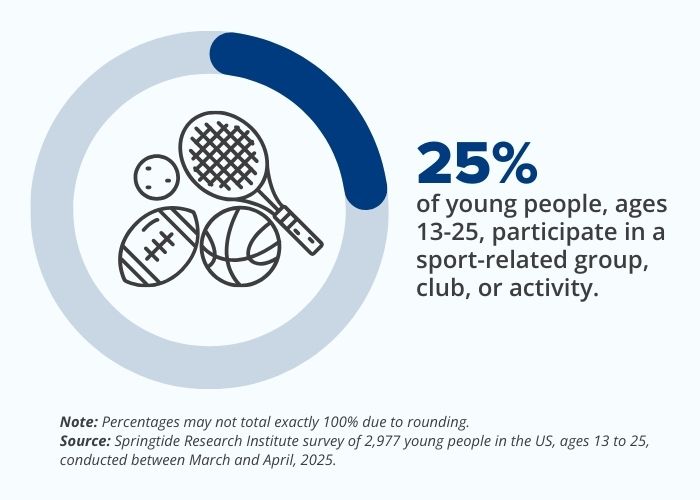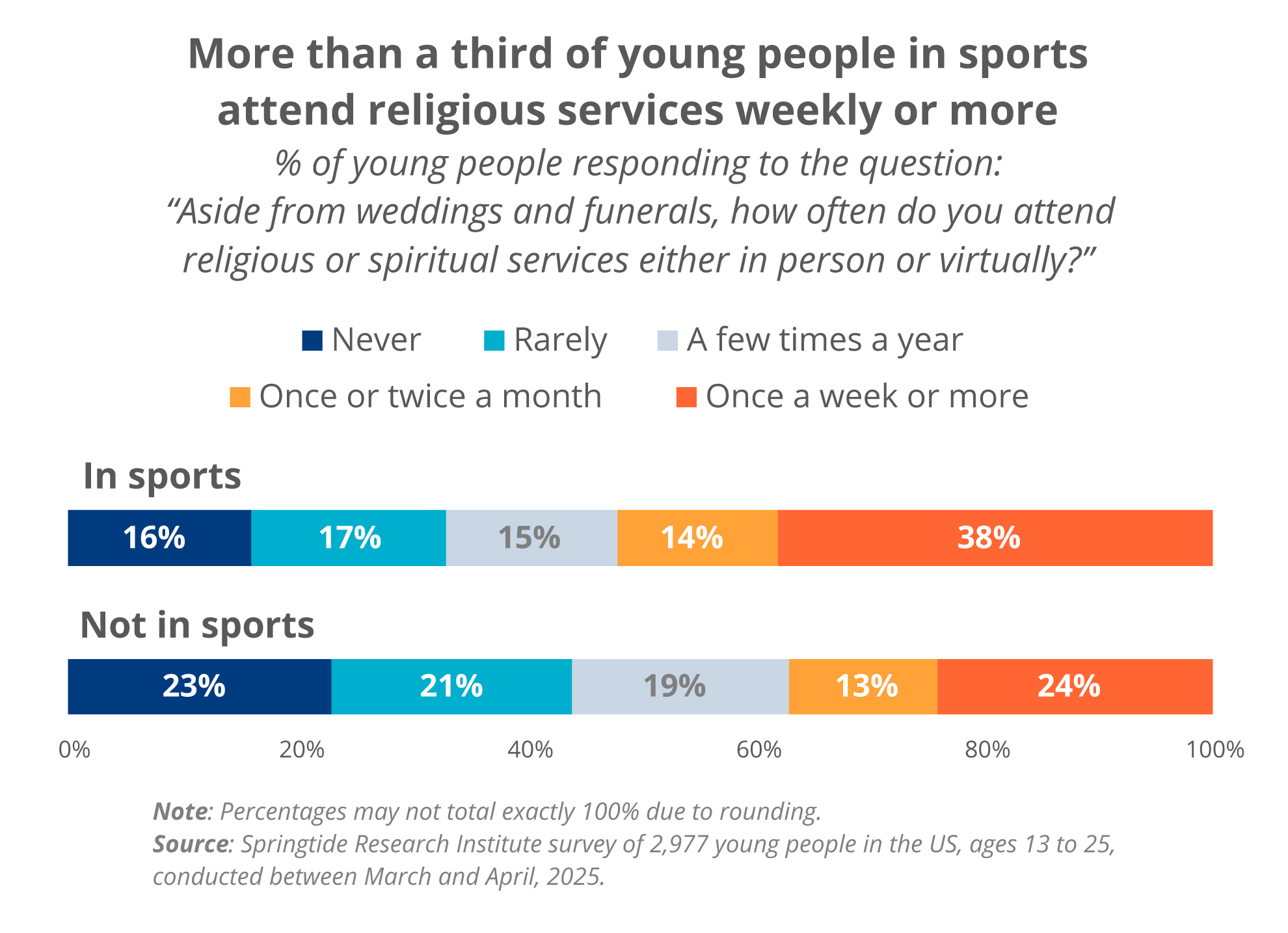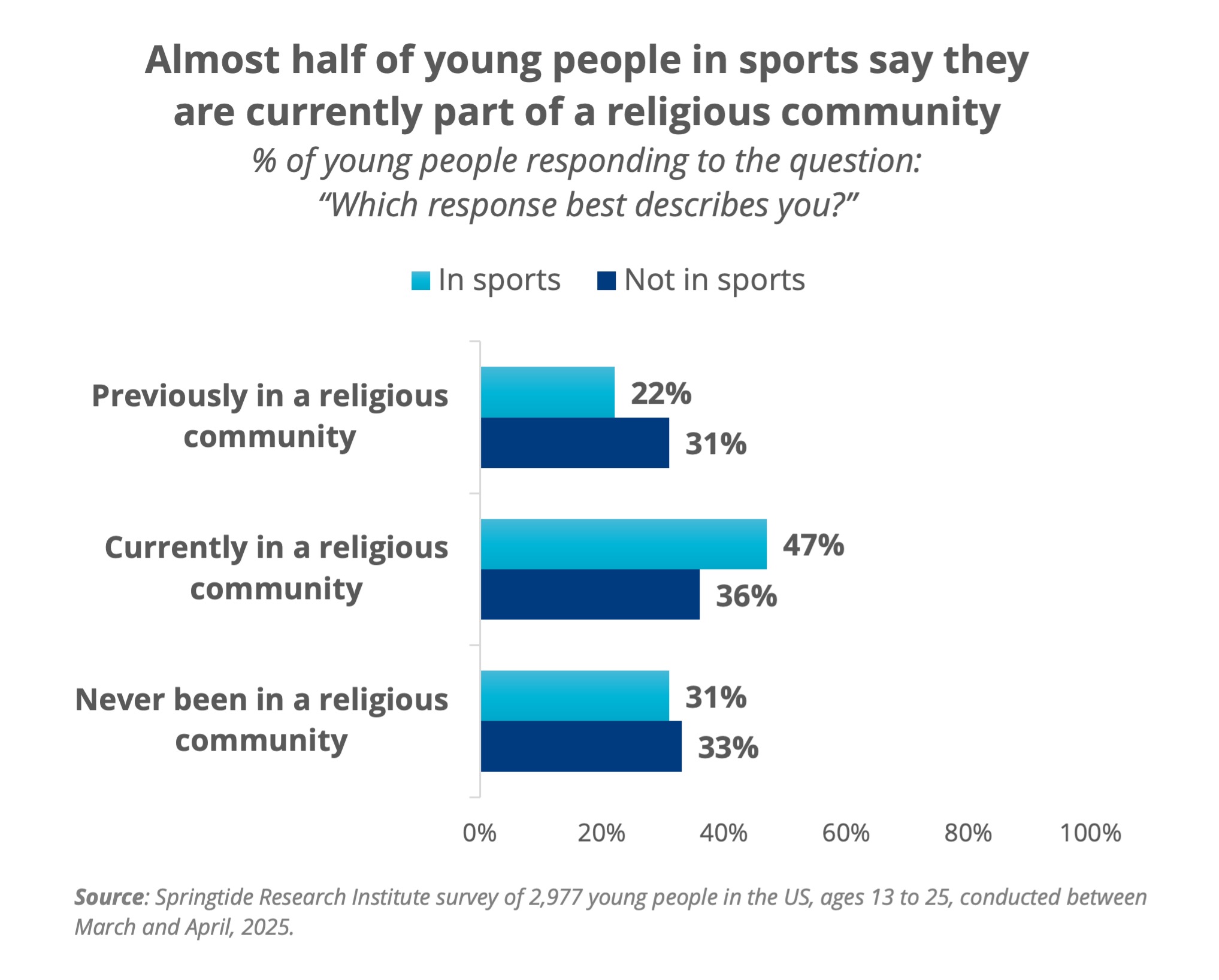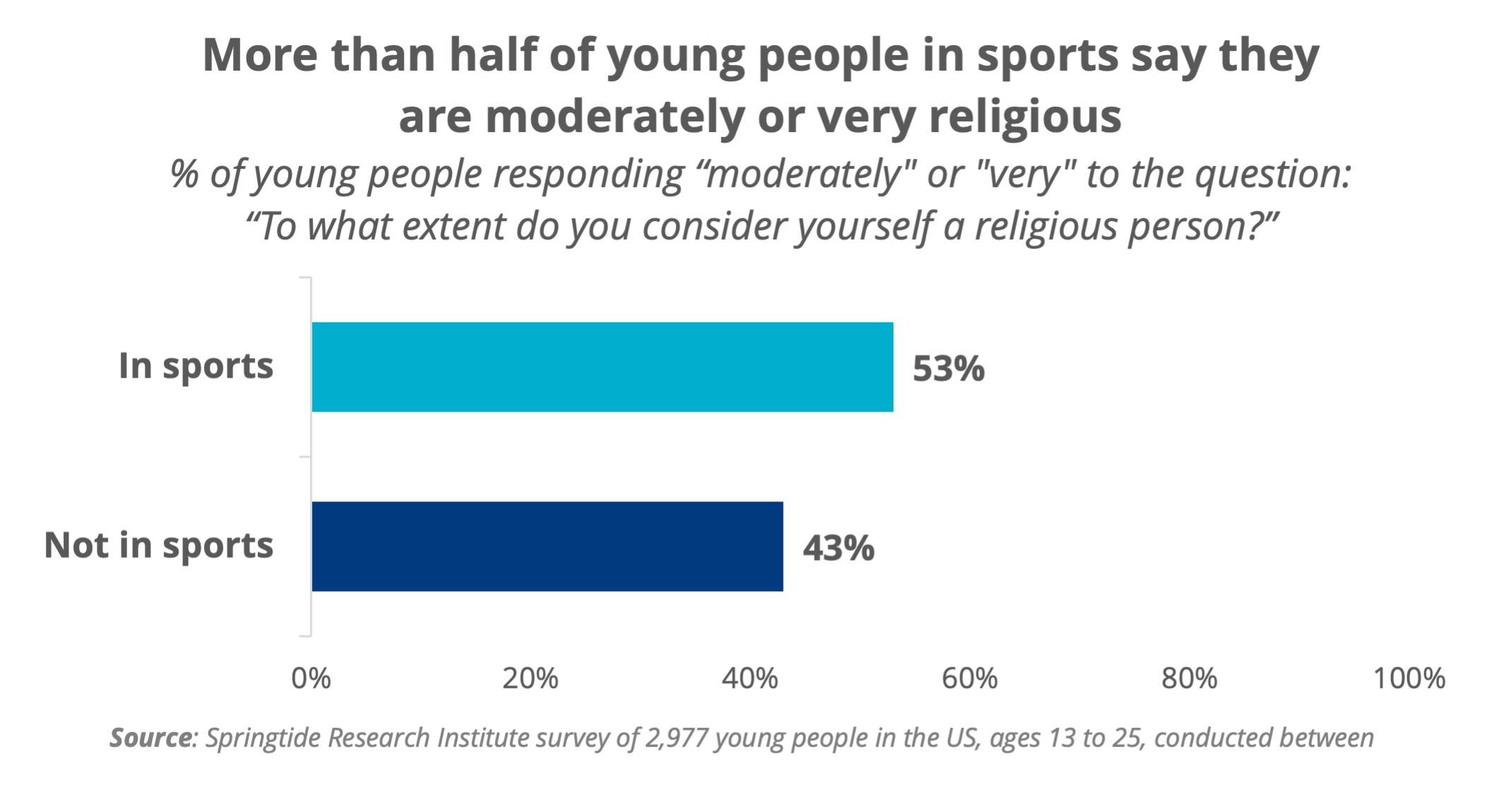
How do sports play into young people’s religious involvement?
Springtide’s 2025 survey of 2,977 young people shows that 25% of young people, ages 13-25, participate in a sport-related group, club, or activity. This quarter of young people attend religious services more frequently, are more likely to be part of a religious community, and report higher levels of religiosity than those young people who do not participate in sports.

Young people in sports attend religious services more often than their peers
When it comes to religious service attendance, young people who play sports tend to attend more frequently compared to those who do not play sports. For example, more than one-third (38%) of young people who participate in sports attend religious services at least weekly. A smaller share (24%) of young people who do not participate in sports attend religious services at least weekly. Sixteen percent of young people in sports never attend religious services compared to 23% of young people who are not in sports. This suggests that for many young people, involvement in sports does not reduce religious service attendance.

Almost half of youth in sports say they are part of a religious community
When asked about their connection to a religious or spiritual community, almost half (47%) of young people in sports say they are currently a part of a religious community and over a third (36%) of young people who are not in sports say the same. A similar trend emerges when asking about the past: 22% of young people in sports say they previously belonged to a religious community, and 31% of young people who are not in sports say the same. Similar rates of young people in sports (31%) and not in sports (33%) say they have never been in a religious community.

Young people who play sports are slightly more religious than their peers
When it comes to personal religiosity, young people in sports are slightly more religious than young people who are not in sports. Over half (53%) of young people in sports say they are “moderately” or “very” religious. Young people who are not in sports say the same at a lesser rate of 43%.

Conclusion
The data do not suggest a negative relationship between religious involvement and young people’s participation in sports—in other words, involvement in sports does not mean young people are attending religious services less. Overall, the data suggest a positive association between sports and religious involvement: Those who play sports attend services more frequently and report higher levels of religiousness compared to their non-sports-playing peers.
Note: The survey and interview data featured in this Data Drop come from Springtide Research Institute’s 2025 Study of Young People’s Organizational Involvement. Springtide surveyed a sample of 2,977 young people in the US, ages 13–25 and interviewed an additional 51 in depth. See survey responses in the topline survey results and review methodology here.



